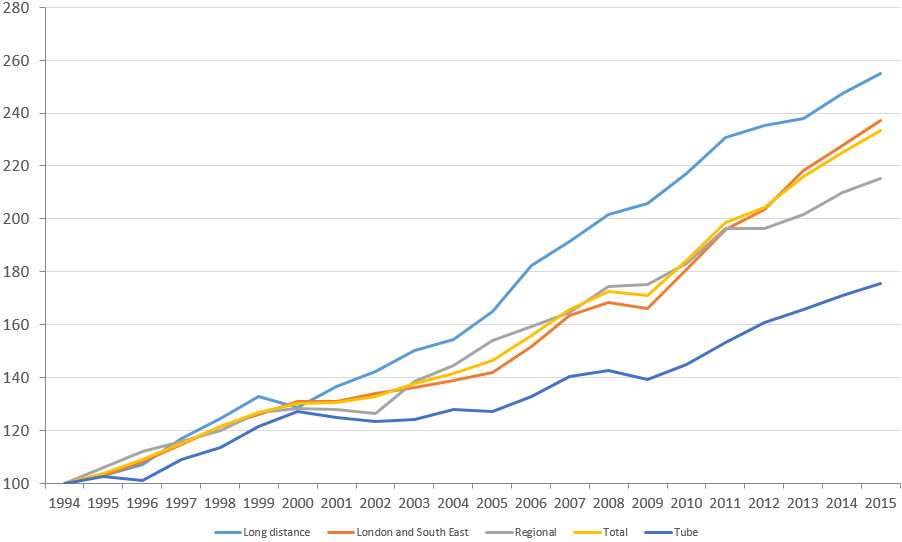Continuing the discussion from Southern Rail:
Surprise surprise:
This isn’t “commuters.” This is ideological leftwing activism.
The same sort of activism at work in the unions - the target being a private rail company and the Tory government. And the unions make no secret of their game plan, as evidenced in the Unions vs Tories topic.
And to anyone that thinks British Rail is the solution:
Rail modal share (rail’s share of total travel) 1952–2014:
As for safety:








